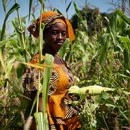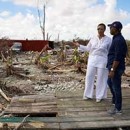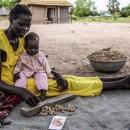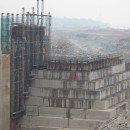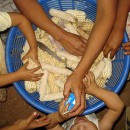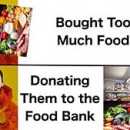Sunday, June 11, 2023
News and Views from the Global South
Editors' Choice
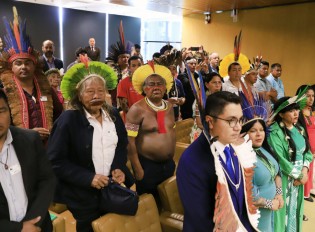
A 1904 Massacre Could Help Save the Future of Indigenous Peoples in Brazil
Children were thrown into the air and stabbed and cut with knives and machetes. The attackers first opened fire on the victims of the massacre before finishing them off with knives so that none of the 244 indigenous people of the village would survive. The 1904 massacre permanently marked the Xokleng people and may play a decisive role in the future of the native peoples of Brazil.
We Need to Talk About Deep Blue Carbon
Almost half of the world’s population lives in coastal zones. For islands in the Pacific and Caribbean islands such as Dominica, where up to 90 percent of the population lives on the coast, the ocean is fundamental to lives and livelihoods. From fisheries to tourism and shipping, this essential body which covers over 70 percent of the planet, is a lifeline.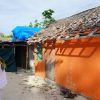
Climate Disasters Have Major Consequences for Informal Economies
In the Pacific Islands and many developing and emerging countries worldwide, the informal economy far outsizes the formal one, playing a vital role in the survival of urban and rural households and absorbing expanding working-age populations.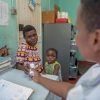
Close Inequalities to End AIDS & Prepare for Future Pandemics
The COVID-19 crisis has shone a light on the danger of pandemics; social crises have shone a light on the danger of inequalities. And the reality is that outbreaks become the pandemics they do because of inequality. The good news is that both can be overcome – if they are confronted as one.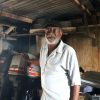
Rocky Point Fishers Await Sanctuary To Ease Environmental Issues, Low Fish Catch
Long before the COVID-19 Pandemic, fishers at the Rocky Point fishing beach in Clarendon were forced to venture farther out to sea to make a living or find alternatives to make ends meet.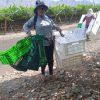
Peru’s Agro-Export Boom Has not Boosted Human Development
Peru’s agro-export industry is growing steadily and reached record levels in 2022. But this has not had a favorable impact on human development in this South American country, where high levels of inequality, poverty, childhood anemia and malnutrition persist, as well as complaints about the poor quality of employment in the sector.
Thailand’s Opposition Prepares for Office Despite Military Resistance
Thailand is heading to the edge of the precipice as conservative and military forces could possibly refuse to recognise the will of the people, as expressed in one of the country's biggest election upsets.
Menstrual Health and Hygiene Is Unaffordable for Poor Girls and Women in Latin America
Menstrual hygiene management is elusive for millions of poor women and girls in Latin America, who suffer because their living conditions make it difficult or impossible for them to access resources and services that could make menstruation a simple normal part of life.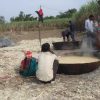
How Farmer Producer Organisations Benefit Small Scale Farmers in India
Until a decade ago, marginal farmers Gangotri Chandrol and Sunitabai lacked livelihood options in the post-monsoon season.
Cooperatives in Argentina Help Drive Expansion of Renewable Energy
When the residents of Armstrong, a town of 15,000 in western Argentina, began to meet to discuss a renewable energy project, they agreed that there could be many positive effects and that it was not just a question of doing their bit in the global effort to mitigate climate change.
How Wagner Group, Mercenaries With a Wider Agenda, Impact Civil Society
The Wagner Group, a shadowy mercenary group that has been operating for many years in African countries such as Sudan, Mali, the Central African Republic, and other mainly Francophone countries, has again been thrust into the limelight due to its involvement in the Ukraine war on behalf of Russia.
Governments Are Changing Fisheries Management for the Better, but More Action Is Still Needed
Global fisheries are worth more than US$140 billion each year, according to the Food and Agriculture Organization (FAO) of the United Nations. But this hefty sum does not capture the true value of fish to ocean health, and to the food security and cultures of communities around the world.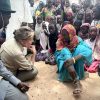
Khartoum is Falling – the Global Community Must Move Fast to Protect Children in their Darkest Moments
As unprecedentedly fierce armed battles play out on the streets of Khartoum, more than 600 people are dead, thousands injured, and over 1 million displaced.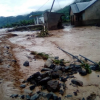
Rwanda: Better Mapping of Erosion Risk Areas Needed More Than Ever
Following severe flooding and landslides that hit major parts of Rwanda earlier this month, experts are convinced that investing in the mapping of erosion risk areas could go a long way to keeping the number of casualties down.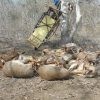
Nothing Beats Bushmeat, Not Even the Risk of Disease
Meat from wild animals is relished across Africa and widely traded, but scientists are warning that eating bush meat is a potential health risk, especially in the wake of pandemics like COVID-19.
Government Financing for Mayan Train Violates Socio-environmental Standards
Mexico’s development banks have violated their own socio-environmental standards while granting loans for the construction of the Mayan Train (TM), the flagship project of the presidency of Andrés Manuel López Obrador.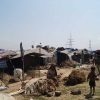
Indian Christians Seek Equal Rights for Dalit Converts
Renuka Kumari is a 45-year-old Christian woman from the Dalit community in India's northern state of Uttar Pradesh. She faces numerous challenges every day and hopes for a day when her struggles will end and she can lead a comfortable life.
What does Imran Khan’s Arrest, Protests Mean for Pakistan?
The arrest of former Prime Minister Imran Khan on alleged corruption charges has led to the deterioration of law and order with attacks on army offices for the first time since the country came into being in 1947.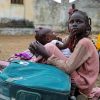
Violence Knows No Borders
Events in Sudan have been a constant topic of conversation in Cairo's coffee houses since the violence erupted there four weeks ago. The images of almost 30 Egyptian soldiers briefly detained in Sudan by Rapid Support Forces (RSF) militias and the death of an Egyptian diplomat in Khartoum caused a stir in Egypt.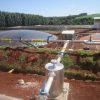
Livestock Producers Seek to Integrate Biogas and Animal Protein Market in Brazil
It is the “best energy,” according to its producers, but biogas from livestock waste still lacks an organized market that would allow it to take off and realize its potential in Brazil, the world's largest meat exporter.
Can a Pledge to End TB Stick This Time Around?
This week, the United Nations will host two days (May 8-9) of preliminary talks to plan a larger conference on tuberculosis (TB) in September. These preliminary talks will be held in New York City, the epicenter of the last significant surge of TB cases in the United States (U.S.) thirty years ago.Next Page »

